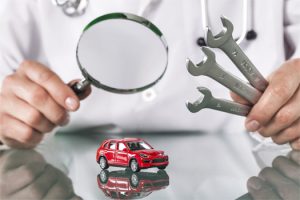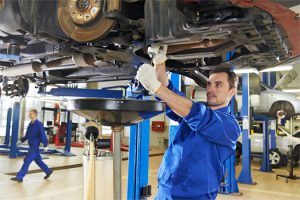A lot of people don’t trust used car dealerships because some of them try to hide problems from potential buyers. You should always be cautious when purchasing a used vehicle and be careful of who you purchase from. Before you go to a used car dealership, look for reviews on the internet about their business. Here are a few of the top things used car dealers sometimes attempt to hide from potential buyers.
1. Engine Problems
Engine issues can be problematic for a variety of reasons. Used car dealerships may try to hide problems with the engine because they know they’re expensive to fix and they don’t want to lose money.
2. The Title
One of the worst things that can happen is purchasing a vehicle only to find out there’s something wrong with the title. Always make sure the vehicle you’re buying has a clean title before you sign any papers. You can usually find this information by checking the vehicle’s history report.
3. High Mileage
A lot of buyers won’t purchase a vehicle that has high mileage because they think the vehicle might have poor performance. Some used car dealers try to hide this information by omitting the exact mileage from the car’s fact sheet. Don’t trust what’s on the fact sheet. Check the mileage yourself.
4. Car History
Used car dealers aren’t legally obligated to tell you every detail about the vehicle’s history, but it’s illegal for them to lie to you. Still, some of them do it. Always look up the history of the vehicle you’re thinking about purchasing before you make your decision.
5. Defects
If the used vehicle you’re interested in has any defects, the dealer might park the vehicle in a position that makes it difficult for you to see defects. Make sure you walk around the entire vehicle and perform a thorough inspection. If you’re concerned about any defects you find, make sure to order a professional car inspection.
6. Interior Damage
Some used car dealers may try to hide interior damage by distracting you. The dealer might sit in the vehicle quickly when taking it for a drive or try to take your attention away from a certain area inside the car. Make sure to perform a thorough inspection of the car’s interior to check for damages.
7. The Vehicle’s Value
Many used car dealerships try to raise the purchase price of the vehicle they’re selling to much more than it’s worth. If you’re interested in a vehicle, check its true value before you negotiate a price.
Don’t buy a vehicle when you’re busy and in a hurry, as it makes you vulnerable to getting ripped off. Be suspicious of any used car dealership that tries to pressure you into making a purchase. Dealers use this tactic because they know it often works.
Don’t take the word of a used car dealer at face value. Get a pre-purchase auto inspection to determine if the car you’re interested in is worth your time and money. Call Lemon Squad today at 888-231-7965 to schedule an appointment with one of our reliable technicians.



